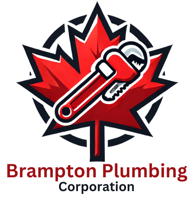Plumbing Solutions for Places of Worship
Ensuring a Safe and Functional Environment
COMMERCIAL SERVICES
11/15/20243 min read


Places of worship are special spaces that serve as sanctuaries for communities to gather, reflect, and worship. Whether it’s a church, mosque, temple, or synagogue, these buildings require reliable plumbing systems to ensure comfort, safety, and proper functionality. Plumbing plays a critical role in maintaining these spaces, from clean restrooms to efficient water systems for cleaning rituals. Here’s how to address the unique plumbing needs of places of worship and keep everything running smoothly.
Key Plumbing Considerations for Places of Worship
Water Supply for Cleanliness and Rituals Many places of worship have specific rituals that require water, such as ablutions, baptisms, or ceremonial washing. Ensuring a consistent and clean water supply is essential to maintaining the sanctity and hygiene of these practices.
Challenge: Disruptions to the water supply can affect religious ceremonies and compromise cleanliness standards.
Solution: Install reliable plumbing fixtures that provide consistent water pressure and quality. Consider touchless faucets and sinks to ensure cleanliness while also promoting water conservation.
Restroom Facilities for Congregation Members Large congregations mean high usage of restroom facilities. Ensuring that these areas are properly maintained and functional is crucial for maintaining comfort and hygiene for worshippers.
Challenge: High traffic in restrooms can lead to clogs, leaks, or unsanitary conditions.
Solution: Regular maintenance of restroom plumbing, including cleaning drains, checking for leaks, and maintaining fixtures, ensures they remain functional during busy services. Install water-saving fixtures, like low-flow toilets and faucets, to minimize water usage and costs.
Grease Traps for Kitchen Areas Many places of worship host events, community meals, or offer services that involve food preparation. A properly functioning kitchen plumbing system, including grease traps, is essential for managing food waste and maintaining sanitation.
Challenge: Grease and food particles can cause significant drain clogs, leading to unsanitary conditions.
Solution: Install and regularly maintain grease traps to catch food waste before it enters the plumbing system. Ensure the kitchen plumbing system is properly designed to handle high volumes of wastewater during large events.
Temperature Control for Water Systems In places of worship, consistent hot water supply is necessary for various needs, such as cleaning, baptisms, or other religious ceremonies. Temperature fluctuations or a lack of hot water can lead to discomfort and interruptions in services.
Challenge: Inconsistent hot water can cause discomfort and disrupt rituals that require it.
Solution: Invest in reliable water heating systems, such as tankless water heaters or high-efficiency water heaters, to maintain consistent water temperature and supply. Regular maintenance ensures these systems perform efficiently.
Drainage Systems and Flood Prevention Proper drainage systems are crucial to preventing flooding in places of worship, especially in basements or areas prone to water accumulation. Standing water or flooding can damage the building structure and create unsafe conditions.
Challenge: Clogged drains or faulty drainage systems can lead to flooding, causing property damage and safety hazards.
Solution: Install sump pumps and ensure that drains are regularly maintained to prevent blockages. Schedule inspections to identify issues early and repair them before they cause significant damage.
Plumbing Maintenance Tips for Places of Worship
Regular Inspections and Preventive Maintenance Routine plumbing inspections are essential for identifying potential issues early, such as leaks, worn-out pipes, or blocked drains. Regular maintenance will extend the lifespan of your plumbing system and prevent costly repairs.
Tip: Schedule seasonal plumbing inspections to address issues like frozen pipes in the winter or clogged drains in the summer.
Proper Waste Disposal and Grease Management Proper waste disposal is key to maintaining a sanitary and functional plumbing system. Ensure that grease, food waste, and other debris are disposed of correctly to avoid clogs and plumbing problems.
Tip: Regularly clean and maintain grease traps and sinks in kitchens or dining areas to prevent build-up and clogs.
Upgrading Plumbing Fixtures Upgrading plumbing fixtures in places of worship not only improves the aesthetics of the facility but also increases efficiency and water conservation. Low-flow faucets, toilets, and touchless fixtures can help reduce water consumption and lower operating costs.
Tip: Consider retrofitting older fixtures with modern, water-saving models to ensure a more efficient and eco-friendly plumbing system.
Ensuring Accessibility and Safety Plumbing systems in places of worship must meet accessibility standards, ensuring that bathrooms and facilities are safe and easy to use for people with disabilities.
Tip: Install ADA-compliant toilets, grab bars, and accessible sinks to ensure all members of the congregation can use the facilities comfortably and safely.
Why Choose Brampton Plumbing Corporation for Your Place of Worship?
At Brampton Plumbing Corporation, we understand the unique plumbing needs of places of worship. Whether it’s maintaining water supply for religious ceremonies, ensuring reliable restrooms for congregation members, or providing efficient grease traps for kitchen areas, our expert plumbers are here to help. We offer reliable and professional plumbing services that will keep your place of worship running smoothly, efficiently, and hygienically.
Contact Brampton Plumbing Corporation today to schedule your plumbing inspection or service!
Brampton Plumbing Corporation
Building Trust, One Pipe at a Time.
Contact
bramptonplumbingcorp@gmail.com
(647) 819-7072
COPYRIGHT © 2020-2024 Brampton Plumbing Corporation






